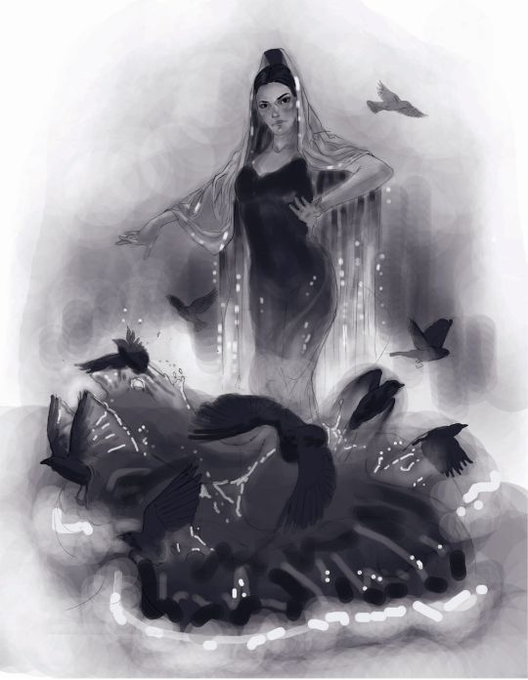According to Pashtun folklore, sleep paralysis may result from an attempt at strangulation by a kind of malevolent ghost called a "khapasa". It would *like* to kill the person, but, lacking thumbs, can't strangle them effectively and just ends up sitting on their chest.#Folklore
In Chinese mythology, the spirits of the dead newly arrived to Hell are sometimes said to be first met by Horseface and Oxhead, two servents of the Hellish Court responsible for bringing them over for judgement (and perhaps punish any attempted escapes)#Folklore #Mythology
The "skrzak" of Polish folklore are supposedly black, winged little evil imps who hide in dark caverns, like bats. When humans enter, they swarm over them, laughing and screaming manically in an attempt to drive them mad, clawing and biting at them.#FolkloreThursday
It is said that the alojas, water fairies of Catalan folklore who sometimes take the shape of dippers, will marry good-hearted men. They'll leave if their nature is exposed, but still will never fail to secretly arrive each night to comb their children's hair.#FolkloreThursday
By Cornwall folklore, a mermaid used to frequent the village of Zennor, where she was famed for her singing. Everyone assumed she was just a human woman, until one day sailors accidentally hit her underwater house with an anchor and she surfaced to ask them to move.#Folklore
The "kosode-no-te" of Japanese folklore is an artifact spirit (tsukomokami) manifesting within the sleeveless robe (kosode) of a prostitute who died in misery. These vengeful beings have been said to attempt to strangle anyone who puts the robes on!#FolkloreThursday
Though depicted as hairy giants who live away from civilization, the basajaunak of Basque folklore are also attributed great wisdom: they're said to, for example, have been those who taught various crafts to mankind, and built enormous megaliths in their days.#FolkloreThursday
A Will-O'-the-Wisp (or "Ignis Fatuus", in Latin) is a being or phenomenon appearing in much of European folklore, especially English. It is a mysterious, floating light that appears in a forest. Some say they lead travelers astray - others, towards safety...#FolkloreThursday
In his writings, Aelianus said of the manticore he's heard that not only are its spines deadly poisonous, but can grow like plants if embedded in the ground - and that in its native India, manticores cubs are caught and have their tails crushed to prevent spines growing.#Folklore
Perhaps the moral of the Japanese legend of Princess Kaguya is that living forever won't be worth it without one's love - it's why immortal moon-woman Kaguya avoids marrying on Earth, and why the Emperor, who so loved her, ultimately refuses to be made one alone.#FolkloreThursday











